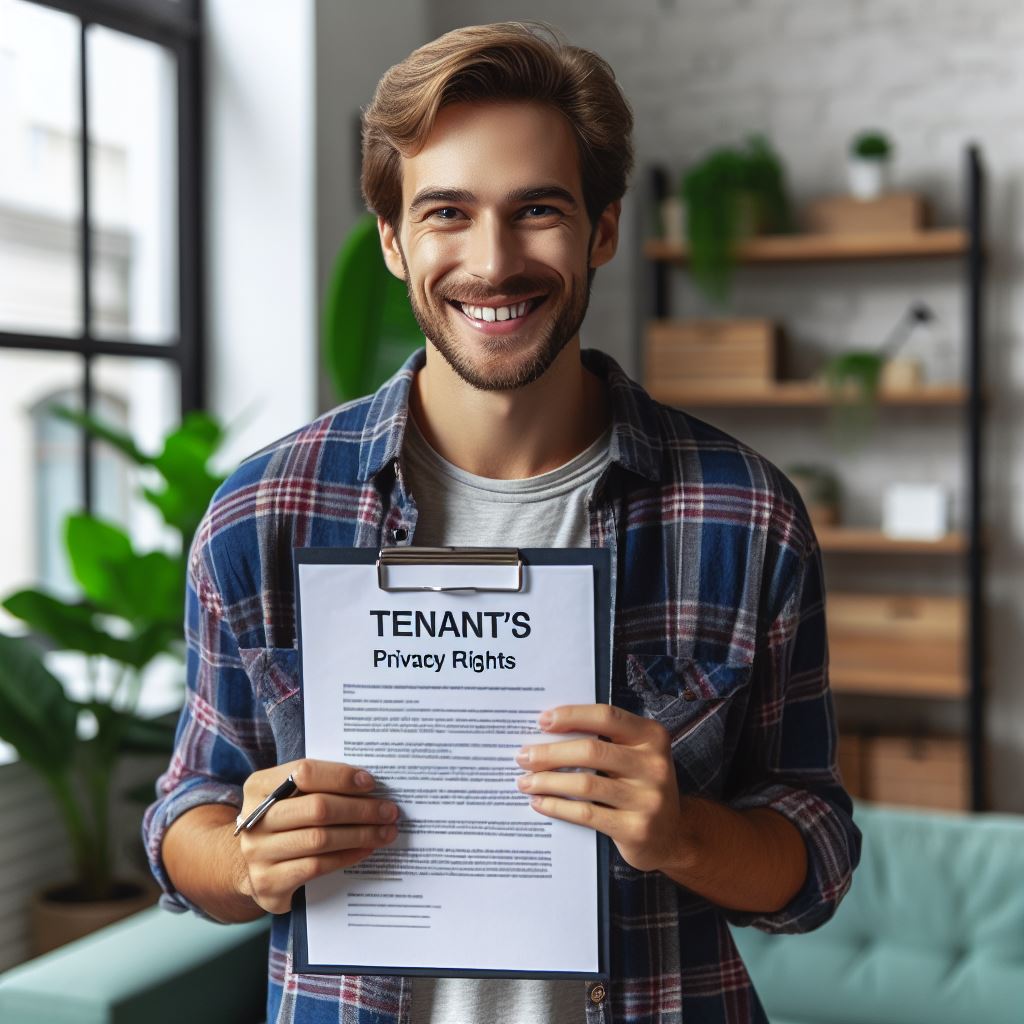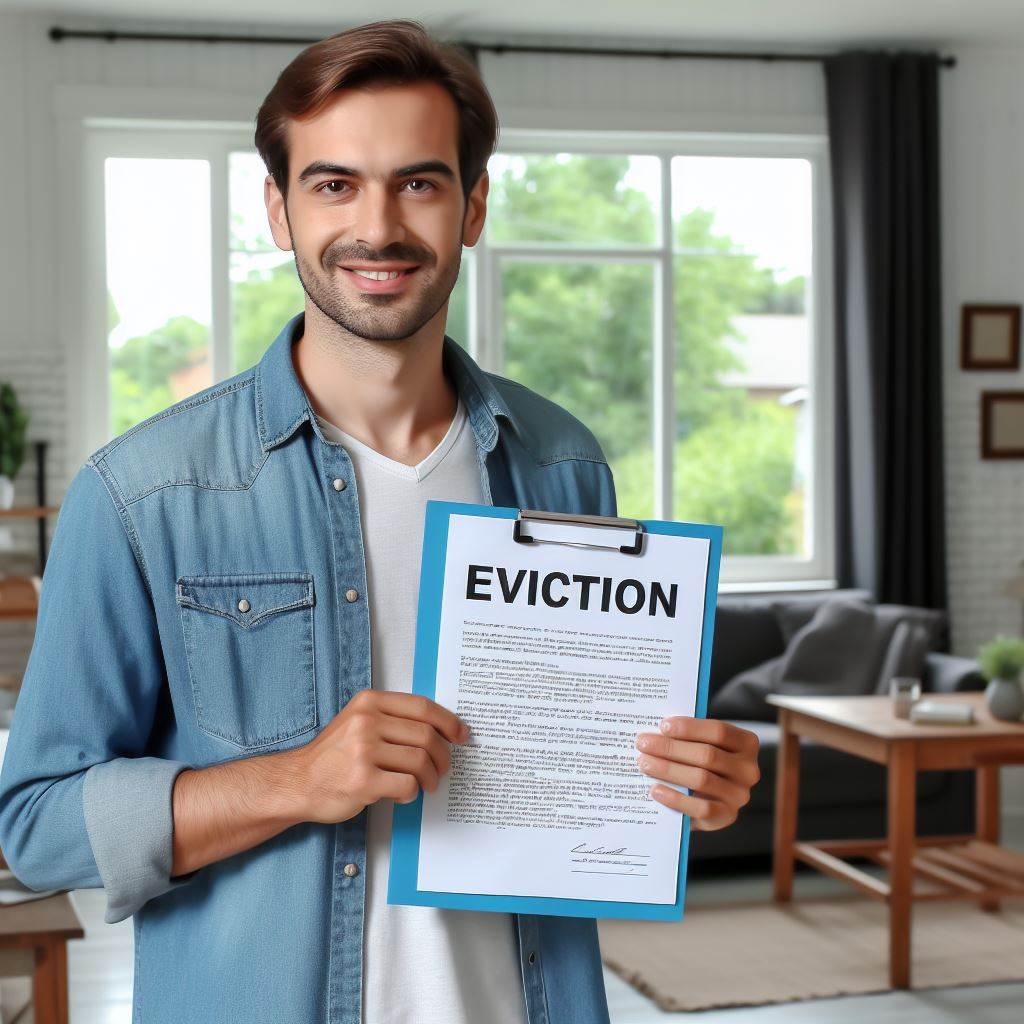Introduction
Property maintenance is crucial for rental properties as it ensures the well-being and satisfaction of tenants.
Properly maintained properties attract and retain tenants, leading to a consistent rental income and positive reputation.
Landlords are obligated to address upkeep issues promptly, such as plumbing, electrical, and structural repairs, to ensure habitability.
Additionally, they should maintain common areas, ensure safety measures, and address pest control and waste management.
Regular inspections, both internal and external, allow landlords to identify any maintenance needs and address them promptly.
By fulfilling their responsibilities, landlords provide a secure and comfortable living environment for their tenants.
Proper property maintenance is essential for landlords to uphold their obligations and provide a desirable rental property.
Maintaining a well-kept property not only ensures tenant satisfaction but also helps maximize rental income and property value.
By consistently addressing maintenance issues and conducting regular inspections, landlords can create a positive rental experience for tenants.
Understanding Landlord Obligations
As a landlord, it’s crucial to grasp your obligations regarding property maintenance.
Ignoring these responsibilities can lead to legal troubles and disgruntled tenants.
Here, we’ll delve into the key aspects of landlord obligations to ensure you’re on the right track.
Legal Obligations in Property Maintenance
Landlords are legally obliged to maintain their properties to certain standards.
This includes ensuring the property is safe and habitable for tenants.
Failure to meet these standards can result in legal repercussions and potential financial penalties.
Research and Understand Local Laws and Regulations
Laws and regulations regarding property maintenance vary from one locality to another.
It’s imperative for landlords to research and understand the specific requirements in their area.
This may include regulations related to building codes, sanitation standards, and occupancy limits.
Compliance with Health and Safety Codes
One of the primary obligations of landlords is to ensure their properties comply with health and safety codes.
This involves regular inspections to identify and address potential hazards such as faulty wiring, mold growth, or structural issues.
Prompt action is necessary to maintain a safe living environment for tenants.
Providing Habitable Living Conditions
Landlords must provide habitable living conditions for their tenants.
This includes ensuring the property has adequate heating, plumbing, and sanitation facilities.
Any issues affecting habitability should be addressed promptly to prevent discomfort or inconvenience for tenants.
In fact, understanding and fulfilling landlord obligations in property maintenance is essential for fostering positive landlord-tenant relationships and avoiding legal disputes.
By staying informed about local laws, complying with health and safety codes, and providing habitable living conditions, landlords can uphold their responsibilities and create a safe and comfortable living environment for their tenants.
Read: Rent Increase Rules: A Guide for Tenants
Regular Maintenance Tasks
Property maintenance is an essential aspect of being a responsible landlord.
Ensuring that your property is well-maintained not only preserves its value but also provides a safe and comfortable environment for your tenants.
In this section, we’ll delve into the various regular maintenance tasks that landlords are obligated to perform.
Exterior Maintenance
The exterior of your property is the first thing tenants and visitors see.
Regular maintenance tasks here include inspecting and repairing any damage to the building’s structure, roof, and windows.
Timely repairs prevent further deterioration and maintain the property’s curb appeal.
Landscaping and Lawn Care
A well-maintained landscape enhances the overall appearance of your property.
Landlords should invest in regular lawn care, trimming bushes, and pruning trees to keep the exterior looking neat and attractive.
Cleaning and Maintaining Common Areas
Common areas such as hallways, stairwells, and entryways should be kept clean and well-lit.
Regular cleaning ensures a pleasant environment for tenants and reduces the risk of accidents.
Interior Maintenance
Inside the property, landlords are responsible for plumbing and electrical repairs.
Promptly addressing issues such as leaky faucets or malfunctioning outlets prevents further damage and inconvenience to tenants.
HVAC Maintenance and Repairs
Heating, ventilation, and air conditioning (HVAC) systems require regular maintenance to function efficiently.
Landlords should schedule routine inspections and servicing to ensure these systems operate effectively and reduce energy costs.
Fixing Appliances and Fixtures
Appliances and fixtures provided by the landlord should be in good working condition.
Repairing or replacing faulty appliances promptly ensures tenants can enjoy a comfortable living space.
Addressing Tenant-Reported Issues Promptly
Tenants may encounter various issues during their tenancy, such as plumbing leaks or electrical problems.
Landlords must respond promptly to tenant-reported issues, prioritizing repairs to maintain tenant satisfaction and prevent further damage.
In short, regular maintenance tasks are crucial for landlords to fulfill their obligations and provide a safe, comfortable living environment for tenants.
By prioritizing exterior and interior maintenance, addressing tenant-reported issues promptly, and ensuring the property’s systems are in good working order, landlords can uphold their responsibilities and preserve the value of their investment.
Read: Lease Termination: Rights and Procedures
Ensuring safety for tenants
The safety and well-being of tenants should always be a top priority for landlords.
Ensuring that the rental property is safe and secure not only protects the tenants but also minimizes liability for the landlord.
Here are some key obligations landlords have in this regard:
Regular Inspections and Assessments
Regular inspections of the property are essential for identifying any potential hazards or maintenance issues.
Landlords should conduct thorough inspections at least once or twice a year, depending on local regulations and the condition of the property.
These inspections should cover all areas of the rental unit, including common areas, to identify any safety concerns promptly.
Installing and Maintaining Smoke Detectors and Carbon Monoxide Detectors
Smoke detectors and carbon monoxide detectors are crucial for early detection of fire and carbon monoxide leaks, respectively.
Landlords must ensure that these devices are installed in appropriate locations throughout the rental property, such as near bedrooms and on every level of the building.
Additionally, landlords should regularly inspect and test these detectors to ensure they are in working condition.
Ensuring Adequate Lighting and Security Measures
Proper lighting and security measures can help deter criminal activity and improve the overall safety of the property.
Landlords should ensure that outdoor areas, such as parking lots, walkways, and entryways, are well-lit to reduce the risk of accidents and intrusions.
Installing security cameras or alarm systems can provide an additional layer of protection for tenants and their belongings.
Repairing Potential Hazards Promptly
Landlords are responsible for promptly addressing any maintenance issues or hazards that may pose a risk to tenants’ safety.
This includes repairing or replacing items such as loose stairs, broken locks, faulty electrical wiring, or leaky plumbing.
Failure to address these issues in a timely manner could lead to accidents or injuries and potential legal liability for the landlord.
In essence, landlords have a legal and ethical obligation to ensure the safety of their tenants.
By conducting regular inspections, installing and maintaining necessary safety equipment, implementing adequate lighting and security measures, and promptly addressing maintenance issues, landlords can create a safe and secure living environment for their tenants.
Read: Landlords: Navigating Repair Responsibilities

Responding to tenant requests and complaints
Effective property maintenance is not only about ensuring the physical upkeep of the premises but also about fostering a positive relationship with tenants.
As a landlord, responding promptly to tenant requests and complaints is paramount in upholding your obligations and ensuring tenant satisfaction.
Establishing Effective Communication Channels with Tenants
Open communication channels are the cornerstone of successful landlord-tenant relationships.
Implementing various communication platforms such as email, phone, or a dedicated online portal can facilitate easy interaction between landlords and tenants.
Encourage tenants to reach out with any concerns or maintenance issues they may encounter.
Providing a Clear Process for Reporting Maintenance Issues
A transparent reporting process simplifies the procedure for tenants to report maintenance issues.
Clearly outline the steps tenants should take when encountering a problem, whether it’s submitting a form, sending an email, or calling a designated maintenance hotline.
Additionally, educate tenants on what constitutes an emergency repair and how to address such situations promptly.
Promptly Addressing Reported Problems
Upon receiving maintenance requests or complaints, respond promptly to acknowledge receipt and assure tenants that their concerns are being addressed.
Prioritize urgent matters to prevent further damage or inconvenience to tenants.
Even if immediate action cannot be taken, keeping tenants informed about the status of their request is crucial for maintaining trust and satisfaction.
Scheduling Repairs and Maintenance Work in a Timely Manner
Efficient scheduling of repairs and maintenance work is key to resolving issues promptly.
Coordinate with qualified contractors or maintenance staff to schedule appointments at the earliest convenience.
Consider creating a maintenance calendar to track upcoming tasks and ensure timely completion.
Regularly follow up with tenants to confirm that repairs have been satisfactorily completed.
All in all, responsive property maintenance involves establishing effective communication channels, providing clear reporting processes, promptly addressing tenant requests, and scheduling repairs in a timely manner.
By prioritizing tenant concerns and maintaining open lines of communication, landlords can uphold their obligations and cultivate a positive rental experience for all parties involved.
Read: Tenant Rights: Security Deposit Insights
Outsourcing maintenance tasks
Outsourcing maintenance tasks can be a smart decision for landlords. Here are some considerations:
Evaluating the need for professional help
Assess the complexity of the maintenance tasks and determine if they require specialized knowledge or skills.
If the tasks are beyond your capability or are time-consuming, it may be best to outsource them.
Hiring reliable contractors and service providers
When outsourcing, it’s crucial to find reputable contractors and service providers who deliver high-quality work.
Do thorough research, check references, and request multiple quotes to ensure you get the best deal.
Considering property management companies
Property management companies offer a comprehensive range of maintenance services. Consider their advantages:
- They have a network of skilled professionals and can efficiently handle various maintenance tasks.
- They ensure regular inspection and preventive maintenance to avoid costly repairs.
- They have experience dealing with tenant requests and addressing maintenance issues promptly.
However, remember to weigh the benefits against the associated costs when considering property management companies.
Weighing the cost-benefit of outsourcing versus DIY maintenance
Before making a decision, carefully evaluate the cost-benefit analysis of outsourcing versus DIY maintenance:
- Outsourcing saves you time and effort, allowing you to focus on other responsibilities.
- Professional maintenance often leads to higher quality results and tenant satisfaction.
- On the other hand, DIY maintenance can be cost-effective for simple tasks that you can handle efficiently.
- Consider the availability of resources, your skills, and the potential risks and liabilities involved.
Remember, improper maintenance can lead to tenant complaints, legal issues, and decreased property value.
In a nutshell, outsourcing maintenance tasks can be a wise choice for landlords. It ensures skilled professionals handle complex tasks and helps maintain the property’s value and tenant satisfaction.
However, it’s essential to carefully evaluate the need for outsourcing, hire reliable contractors, consider property management companies, and weigh the cost-benefit for optimal results.
Dealing with emergencies and unexpected maintenance issues
Dealing with emergencies and unexpected maintenance issues is an inevitable part of being a landlord.
Whether it’s a burst pipe, a power outage, or any other unforeseen event, having a plan in place beforehand can make all the difference.
Here are some essential steps to take when it comes to dealing with emergencies:
Establishing an emergency plan
One of the first things every landlord should do is establish an emergency plan.
This plan outlines the necessary steps to be taken in case of an emergency, ensuring that everyone knows what to do when a crisis occurs.
It should include contact information for emergency services, instructions for shutting off utilities, and any other relevant information specific to the property.
Being prepared for common emergencies like leaks or power outages
While it’s impossible to predict every emergency, being prepared for common issues like leaks or power outages can minimize damage and inconvenience.
Regularly inspect the property for potential hazards, such as aging pipes or faulty electrical systems.
Take proactive measures, such as installing water leak detectors or backup power sources, to mitigate potential problems before they escalate.
Communicating emergency procedures to tenants
Clear and consistent communication with your tenants is essential when it comes to emergencies.
Make sure that all tenants are aware of the emergency plan and understand their responsibilities.
Provide written instructions and post them in common areas to ensure that everyone has easy access to the information.
Consider conducting regular drills or simulations to reinforce the emergency procedures and familiarize tenants with the process.
Keeping emergency contact information readily available
In any emergency, time is of the essence.
As a landlord, it is your responsibility to keep emergency contact information readily available and easily accessible for your tenants.
This includes providing a list of important phone numbers, such as the nearest hospital, fire department, and police station.
Consider creating a laminated card or posting the information in a common area where tenants can easily find it.
By establishing an emergency plan, being prepared, communicating effectively, and providing easy access to emergency contact information, landlords can effectively deal with emergencies and unexpected maintenance issues.
Being proactive in this regard not only demonstrates your commitment to your tenants’ safety and well-being but also helps minimize potential damage and liabilities.
Legal implications of neglecting maintenance obligations
In property maintenance, landlords have certain obligations to take care of their rental units.
Failure to meet these obligations can have severe legal consequences for landlords.
Tenant rights and legal actions
Landlords have a legal responsibility to maintain their rental properties in livable conditions.
Neglecting this obligation can infringe upon tenant rights, giving tenants grounds to take legal action against the landlord.
Tenants may file complaints with housing authorities, withhold rent, or even terminate their lease agreement.
Financial consequences of neglecting maintenance
Failing to properly maintain a rental property can have financial implications for landlords.
If tenants experience damages or inconveniences resulting from the landlord’s negligence, they may be entitled to compensation.
Landlords can be held accountable for expenses related to repairs, temporary housing, or medical bills if negligence leads to injury.
Penalties and fines for non-compliance with local regulations
Local municipalities enforce specific regulations and standards to ensure rental properties meet safety and health requirements.
Landlords who neglect maintenance obligations can face penalties and fines for violating these regulations.
In extreme cases, municipalities may even order the closure of a property until necessary repairs or upgrades are completed.
Maintaining liability insurance coverage
Landlords typically have liability insurance coverage to protect themselves from potential legal claims.
However, if a landlord neglects maintenance duties and it leads to an accident or injuries, their insurance coverage may become invalid.
This leaves landlords vulnerable to personal liability and potential financial ruin if sued by tenants.
It is essential for landlords to fulfill their maintenance obligations to avoid legal complications and protect their investment.
Regular inspections, prompt repairs, and addressing tenant concerns in a timely manner can help prevent these legal implications.
Neglecting property maintenance can significantly impact landlords’ finances, reputation, and legal standing.
Learn More: The Role of Deeds in US Property Law
Conclusion
Fulfilling landlord maintenance obligations is of utmost importance to ensure the well-being of both the tenants and the property itself.
By proactively maintaining the property, landlords can enjoy numerous benefits such as increased property value, reduced repair costs, and improved tenant satisfaction.
It is crucial for landlords to continuously strive for improvement by staying updated on maintenance best practices and implementing them consistently.
Remember, a well-maintained property not only attracts and retains tenants but also contributes to a positive rental experience for all parties involved.
So, let’s prioritize maintenance, fulfill our obligations, and create a harmonious and thriving rental environment!




